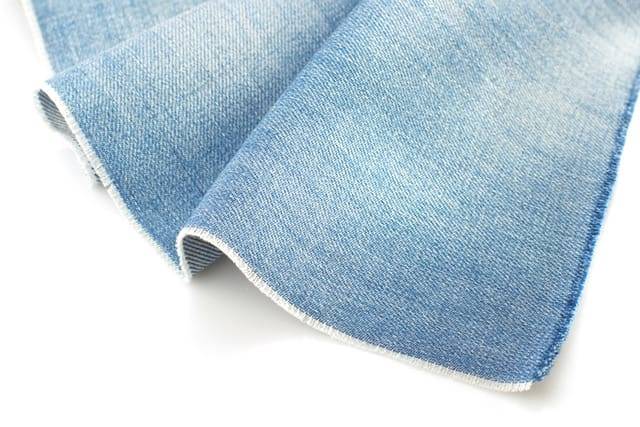Allied Market Research published a report on the global denim fabric market. According to the report, the global denim fabric market generated $18.1 billion in 2020, and is estimated to reach $27.9 billion by 2030, witnessing a CAGR of 4.4% from 2021 to 2030. The report offers a detailed analysis of changing market trends, top segments, key investment pockets, value chain, regional landscape, and competitive scenario.
Presence of denim fabrics at affordable prices and socio-economic trends drive the growth of the global denim fabric market. In many countries such as India, China, Brazil, Italy, Bangladesh, and others, there is an abundant availability of cotton and huge demand for denims. So, new manufacturers are entering the market and leading players are expanding their international presence, creating a huge competition across many countries.
However, uncertainty in raw material prices and environmental concerns arising due to usage of synthetic dyes hinder the market growth. Owing to poor weather conditions, reduction in cotton production, changes in oil prices, and other factors, the prices of cotton are fluctuating. As per the statistics by the U.S. Department of Agriculture, the cotton production from May 2020 to September 2021 resulted in a decline of 5.3 million bales in comparison to the same period in previous year. Moreover, traditional denim production methods involve the usage of synthetic chemicals during dyeing processes and other hardware materials including rivets and metal buttons. This leads to environmental pollution. These factors restrain the market growth.
On the other hand, advent of biodegradable denim fabrics creates new opportunities in the coming years. Manufacturers began development of alternative materials with the need for sustainability. The biodegradable materials will reduce the volumes in landfills and decompose to ensure environmental protection.
With the outbreak of the COVID-19 pandemic, the denim fabric market has been impacted negatively due to manufacturing facility closures and supply chain disruptions. Several denim fabric manufacturing companies and mills needed to shut down their facilities or reduce the operational capacities due to the risk of infection among workers. This temporarily hampered the production volumes in the denim fabric market. In addition, increase in prices of raw materials, specifically cotton and cotton yarn, reduced the manufacturing of denim fabric during the pandemic. For instance, the report by the Denim Manufacturers Association of India (DMAI) stated that the prices of cotton and cotton yarn increased by 20-30% in December 2020 in comparison to March 2020.
Owing to job losses and paycuts during the pandemic, the disposable income of customers reduced considerably and impacted the demand for premium denim products. Moreover, the industry faced various challenges related to transportation, unavailability of skilled workforce, and ban on export/ import activities. This reduced overall revenue in the market. Moreover, several textile shows and exhibitions were postponed due to surge in number of COVID-19 cases and reduce the possibility of cross contamination. This impacted possibility of getting new clients and increase global sales for the denim fabric manufacturers.
The report offers detailed segmentation of the global denim fabric market based on raw material, fabric type, end-use industry, and region. Based on raw material, the market is segmented further into cotton, spandex, polyester, and others. The cotton segment held the highest revenue in 2020, and is expected to manifest a CAGR of 4.5% from 2021 to 2030. Cotton fabric also weighs less and provides durability and comfort. On the basis of fabric type, it is sub-segmented into raw, crushed, sanforized, selvedge, stretch, and others. The raw segment accounted for the highest share in 2020, and is anticipated to witness a CAGR of 4.4% during the forecast period. As this type provides fabric that is touch, appealing to all age groups, and versatile, this segment would grow considerably during the forecast period.
Based on end-use industry, the market is fragmented into clothing & apparel, décor & homeware, and accessories. The decor & homeware segment is projected to register the fastest CAGR during the forecast period, and it is estimated to manifest a CAGR of 5.0% during the forecast period. Geographically, the market is analyzed across North America, Europe, Asia-Pacific, and LAMEA. Asia-Pacific contributed to nearly four-fifths of the global denim fabric market share in 2020, and is estimated to witness a CAGR of 4.6% during the forecast period. This is due to ease in availability of cotton and rise in utilization of denim fabric to produce a wide range of products such as jeans, jackets, shirts, and others.
The leading market players analyzed in the report include Advance Denim Co., Ltd., Bextex, Arvind Limited, HA-MEEM Group, CONE Denim LLC, Isko, House of Gold, LLC, Noman Group, Modern Denim Ltd., and Raymond UCO Denim Pvt. Ltd. They have adopted various strategies such as new product launches, collaborations, partnerships, mergers & acquisitions, agreements, and others to gain a strong foothold and international presence in the market.
Author Name: Swamini Kulkarni-
Author Bio: Swamini Kulkarni holds a bachelor’s degree in Instrumentation and control engineering from Pune University and works as a content writer at Allied Market Research. She is deeply fascinated by the impact of technology on human life and loves to talk about science and mythology. When she is not glued to the computer, she loves to read, travel and daydream about her areas of interest.

